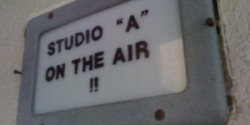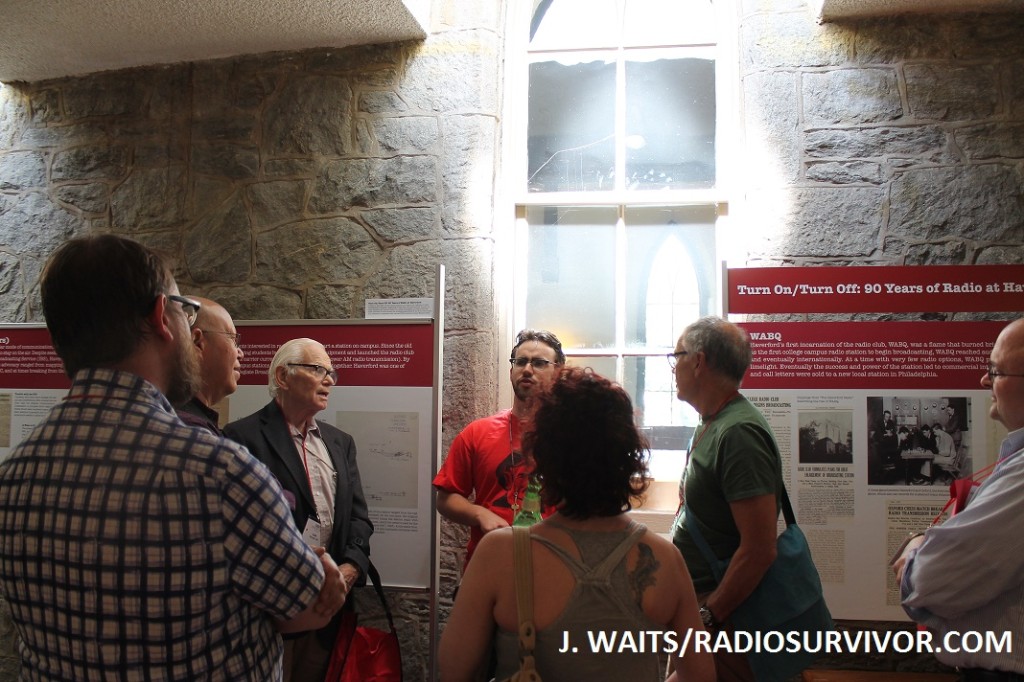Earlier this week, Salon.com posted an article with the title “College radio is dying — and we need to save it.” In the piece, Garrett Martin outlines the situation at WRAS-FM (in which student DJs will soon lose access to the FM station during daytime in order to allow Georgia Public Broadcasting to air public radio programming) and argues for the important role that the Georgia State University radio station has played in music culture in Atlanta. Martin writes,
This is a huge blow for the students who run WRAS, for Atlanta’s art and music communities and for the entire independent music industry. WRAS is one of the most powerful college radio stations in the nation. Its signal is as strong as the law will allow; those 100,000 watts cover all of Atlanta’s sprawling metropolitan area. And the closure of WRAS is just the latest in a long string of colleges failing to preserve their cultural institutions and selling their radio signals off to outside interests. It happened at Rice in 2011, at Vanderbilt between 2011 and 2014, and now it’s happening at Georgia State University, home of one of the most important college radio stations in the nation.
He eloquently outlines the role that college radio stations often play on campuses, serving as outlets for not only underground music, but also as alternative social scenes. He also points out that college radio stations can be deeply enmeshed with local music culture and that their demise can have a negative effect on nearby businesses. Martin closes his piece pointing out that the loss of student voices at WRAS is a warning sign for the future of college radio. He states,
Local radio keeps us in touch with our communities. Local college radio keeps us in touch with parts of our communities that are otherwise invisible. Losing local college radio doesn’t just speed up the streamlined homogenization of our culture; it can decimate the local businesses and art communities that depend on that FM exposure.
If a station as powerful and influential on both a local and national level as WRAS can be gutted, a station whose progressive philosophy was, for decades, synonymous with the urban university that housed it, then all college stations are also at risk. If Rice and Vanderbilt’s stations were the first major dominoes to fall, then WRAS is the biggest — large enough to damage the entire college radio industry. This is the future of college radio, and it’s no future at all.
In pointing out the major college radio station sales that have already occurred, Martin cites KTRU and WRVU as the “first major dominoes to fall.” While I’d agree that these two stations are high profile examples, I’m also surprised that he didn’t include KUSF in his discussion, as I think of the situations (and ensuing protests) at each station as bringing major media attention to college radio station sales.
In the midst of all of this radio activity, big news came out of WRAS last week. It was announced that the planned Georgia Public Broadcasting takeover of daytime WRAS-FM programming will be delayed until June 29. Additionally, a WRAS alumni group has formed and it plans to found a non-profit in order to raise funds in support of the station.
In an article published the same day as the Salon.com piece, I also discussed the state of college radio during a Q&A with College Media Matters scribe Dan Reimold. Although I am also troubled by the situation at WRAS, I also pointed out that college radio is still thriving. College radio stations often have jam packed schedules and some have more interested DJs than available shifts.
In my interview with Reimold, I also talk about the importance of archiving college radio history. When I chatted with Reimold last Friday, I was in the midst of my alumni weekend at Haverford College. Over the course of the weekend, I spent time in the college archives, searching for more details about Haverford College’s first student radio station WABQ-AM, from the 1920s. I also met up with lots of Haverford College radio alums, toured through old radio spaces on campus, and facilitated a panel discussion with former Haverford radio participants from WHAV and WHRC. A very recent graduate from the class of 2014, Karl Moll (pictured above in the red shirt), put together an exhibit chronicling the storied radio past at Haverford and a big crowd mixed and mingled on Saturday afternoon, while taking in the exhibit. As alums from as far back as the 1950s chatted with more recent graduates, it was clear to see that there is still a strong desire to maintain the tradition of college radio on campus.
Radio Survivor will continue to monitor the situation at WRAS. We report on college radio news every Friday in our College Radio Watch column.




